AI technology is transforming industries and putting certain jobs at risk. What jobs will AI replace? This article breaks down the top 12 roles likely to be affected, examines why these roles are vulnerable, and offers strategies for adapting to an AI-driven job market.
Key Takeaways
- AI is expected to replace jobs with repetitive tasks such as customer service representatives, data entry clerks, and telemarketers, impacting millions of workers.
- White-collar jobs such as financial analysts, legal assistants, and market research analysts are also at risk due to AI’s capabilities in data processing and analysis.
- Jobs in two key areas: transportation and logistics, and creative and media sectors are also at high risk for AI replacement. AI-robots to take inventory or fill orders, AI-created graphics, and AI-written articles are already being implemented and replacing jobs.
- While AI has entered almost all job sectors, some career roles are less susceptible to automation. They include certain jobs in teaching and education, healthcare, creative professions, and construction.
- Adapting to an AI-driven job market requires lifelong learning, developing soft skills that AI cannot replicate, and leveraging AI as a collaborative tool to stay competitive.
Introduction
The advent of AI is not simply a matter of technological advancement; it’s a pivotal moment in history with the potential to redefine career paths and boost job security. Akin to the Industrial Revolution, understanding the jobs that AI will revolutionize and those it cannot replace is crucial.
This exploration will illuminate the shifting landscape and guide you towards making informed career decisions in an AI-driven world.
AI’s Impact on the Job Market
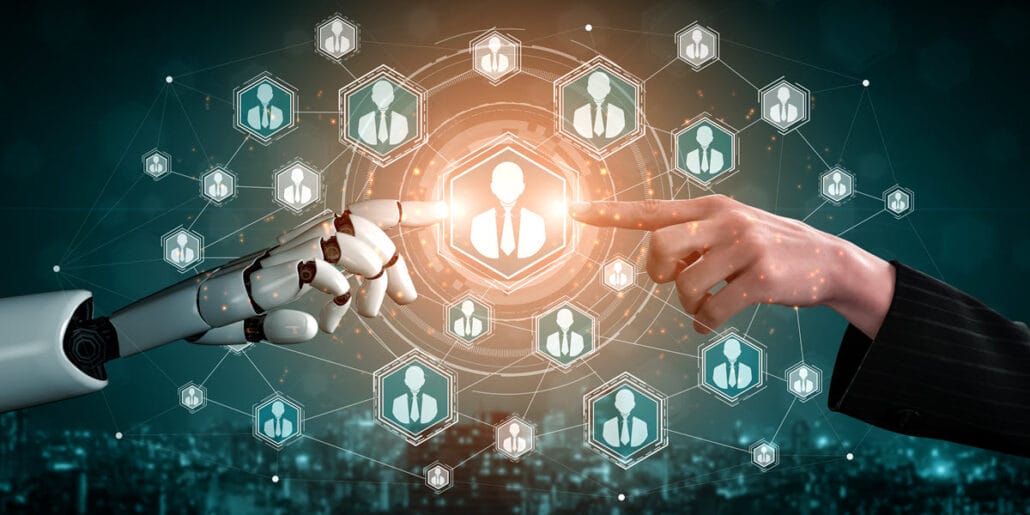
The proliferation of AI tools and technologies marks a profound impact on the job market, reminiscent of the Industrial Revolution’s sweeping changes. While AI promises to spawn new jobs and enhance worker productivity, it also portends the job loss of millions, particularly in roles that AI will replace with automation and advanced AI algorithms.
Exploring how AI is transforming the job market, we can see that careers in the near future will look markedly different from those of today.
Roles Most Likely to Be Replaced by AI
Certain job roles, particularly those characterized by repetitive tasks, stand at the frontline of AI’s advance. With generative AI and machine learning technologies evolving rapidly, positions like customer service representatives, data entry clerks, and factory workers face a high risk of replacement.
A closer examination of these roles will reveal why they are vulnerable and what lies in store for individuals in these professions.
Customer Service Representatives
Customer service representative roles are undergoing a transformation as AI-powered chatbots and voice assistants begin to handle basic inquiries and tasks with increasing proficiency. By 2027, chatbots are expected to be the primary channel for a quarter of all companies, potentially diminishing the need for human workers in this field.
The improving technology behind these AI systems may significantly reduce dependence on human customer service representatives as AI tools replace them in various tasks.
Data Entry Clerks
The future of data entry clerks, often engrossed in repetitive tasks, appears uncertain with AI technology increasingly able to process and analyze data more efficiently and accurately than humans. With the ability to automate manual data entry with no risk for human error, AI systems could potentially replace the need for human intervention in this area, leading to a reevaluation of the role data entry clerks play in the job market.
Telemarketers
Telemarketers, once the ubiquitous voice of product promotion and sales, may find their job roles dwindling as AI systems improve in understanding and generating human speech and text. The advancements in AI could significantly reduce the need for human telemarketers, as automated systems become more adept at:
- Engaging potential customers without human intervention
- Conducting sales calls
- Providing customer support
- Collecting customer feedback
- Generating leads
While this may lead to job losses in the telemarketing industry, it also opens up new opportunities for individuals skilled in AI and automation.
Factory and Warehouse Workers
Automation has long been a feature of the manufacturing world, but AI technologies are set to take this to the next level through AI development. Factory and warehouse workers are particularly at risk, as AI-powered machines demonstrate the ability to navigate environments and retrieve goods with greater speed and consistency than human laborers. Logistics companies like Cart.com are already offering AI and warehouse automation and fulfillment, making a once exclusive technology accessible to nearly any retail brand.
This job market shift underscores the urgency for workers in these industries to adjust to the evolving landscape, as they wonder how many jobs will be affected.
High-Risk White-Collar Jobs
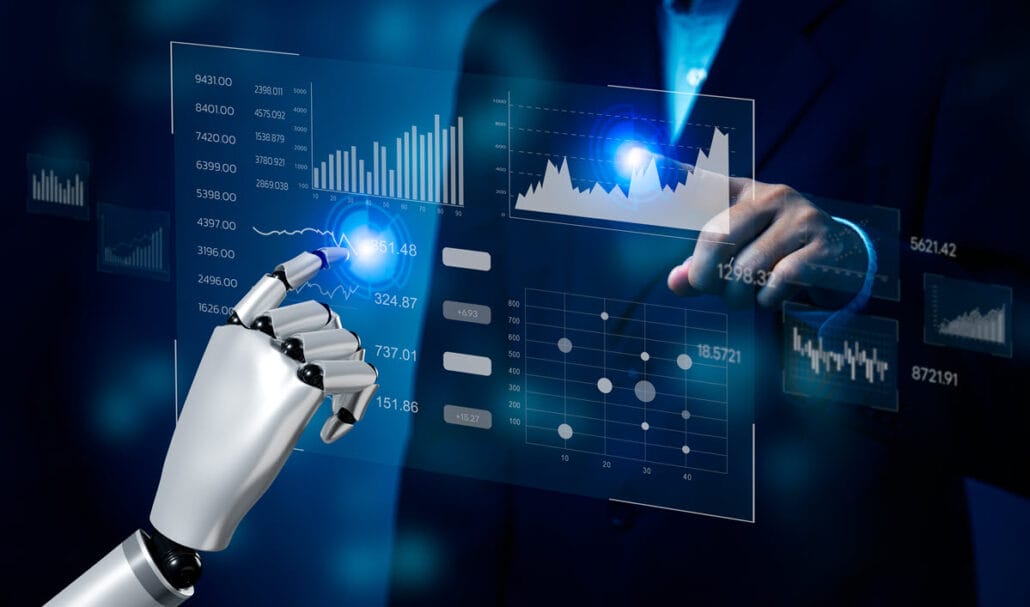
AI automation is not limited to blue-collar jobs; it’s making its way into the white-collar realm as well. Fields such as finance and law, traditionally considered secure, are now facing the reality of AI technology automating their routine tasks. Financial analysts, legal assistants, and market research analysts are among those who might feel the ground shifting beneath their feet as AI continues to redefine job roles across various industries.
Financial Analysts and Traders
Financial analysts and traders, once reliant on their market acumen and intuition, are now contending with AI’s ability to analyze markets, predict trends, and even perform tasks like Excel modeling. Investment banks and financial institutions may find AI a cost-effective alternative to human analysts, as it can process vast volumes of data at speeds unattainable by humans, potentially reducing the demand for financial experts.
Legal Assistants and Paralegals
The legal industry is also feeling the effects of AI, with tasks such as document review and legal research being automated. AI is becoming capable of generating legal reports, sorting through documents, and conducting research at a fraction of the time and cost associated with human labor, which may present a challenge for legal assistants and paralegals looking for jobs in the near future.
Market Research Analysts
Market research analysts, who specialize in data analysis to understand market trends, may also find their jobs at risk. AI’s ability to sift through and interpret vast amounts of market data can lead to more accurate and efficient outcomes, questioning the future need for human analysts in this field.
Creative and Media Jobs at Risk
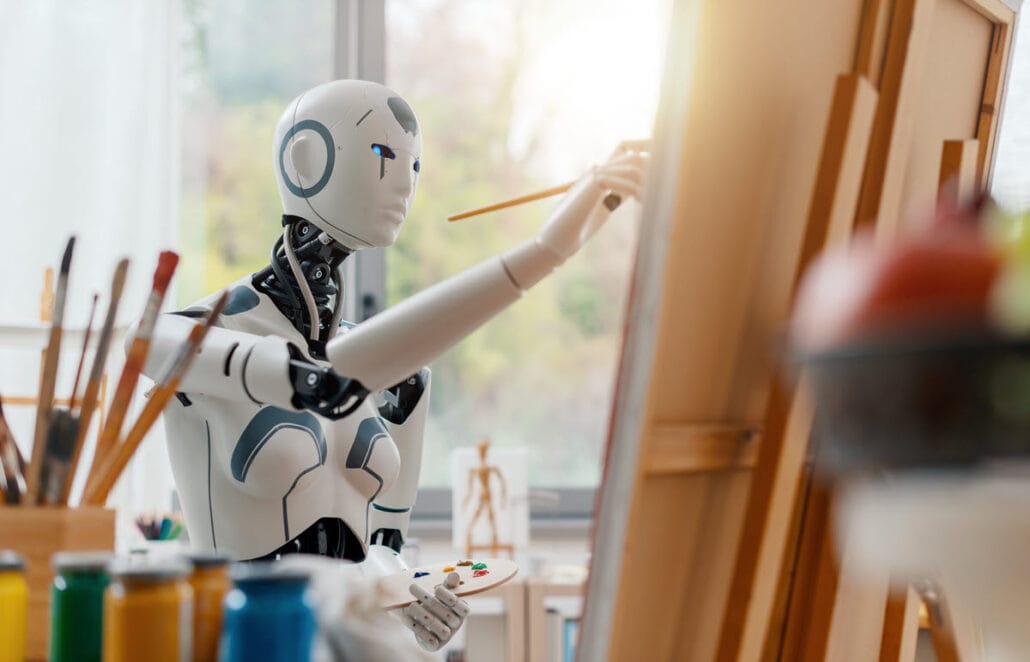
The creative and media sectors are not immune to AI’s encroachment. With AI-generated content and art becoming more sophisticated, concerns are growing among writers and graphic designers about the security of their jobs.
Generative AI tools, powered by artificial intelligence, are now capable of producing articles, books, and images that previously required human creativity and expertise.
Content Writers and Journalists
Content writers and journalists are facing an unprecedented challenge as AI-generated articles become more prevalent. Publishers using AI can churn out content at an astonishing rate, raising questions about the job security of human writers.
This AI-driven technology is already in place. From AI-written resumes to using AI as an assistant in writing this blog post, the content transformation is happening.
While AI can automate the writing process, it often lacks the nuance and creativity inherent in human storytelling. With time, however, this is expected to improve. Combined with it’s never-ending ability to learn, AI may soon have the ability to write more comprehensively – and human-like – than ever before.
Graphic Designers
Graphic designers are also contending with AI’s transformative impact on their profession. Tools like DALL-E and Midjourney are capable of generating complex designs and realistic images from simple text prompts, which could significantly alter the traditional role of graphic designers by automating parts of the design process. AI image generation is still in it’s infancy, and illustrations without people or text tend to generate better than realistic photos with complex detail. Graphic designers may need to stay ahead of AI by excelling in those areas that are more challenging for AI.
Transportation and Logistics Jobs
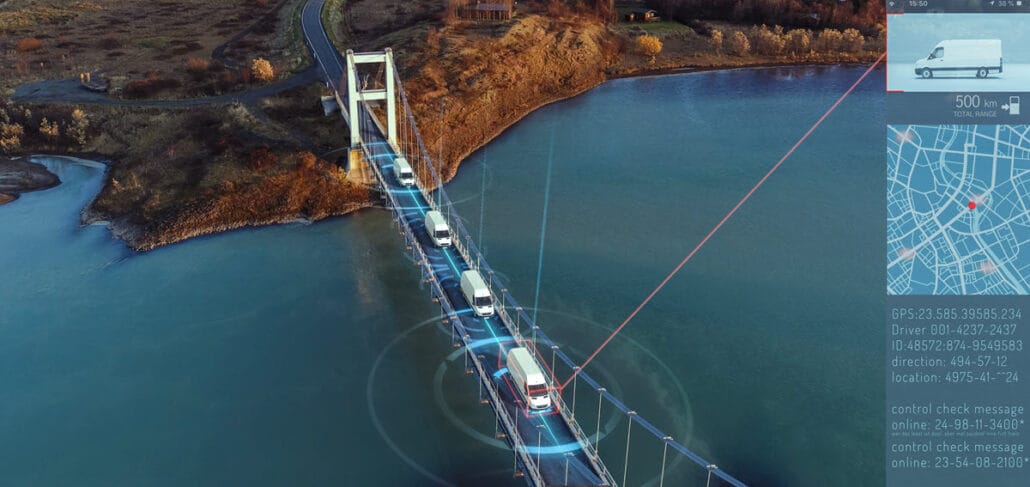
In the transportation and logistics arena, AI’s advancements are reshaping the industry in the following ways:
- Autonomous vehicles are threatening to replace human drivers
- AI-powered route planning is improving efficiency and reducing costs
- AI-powered travel platforms are offering personalized recommendations that once required human expertise
- Contract logistics, supply chain optimization, and product demand forecasting
- Warehouse automation
These changes are revolutionizing the roles of drivers and travel advisors and transforming the way transportation and 3PL logistics companies operate.
Drivers (Car and Truck)
Drivers of cars and trucks are among those most directly impacted by AI technology. With autonomous vehicle technology advancing rapidly, the need for human drivers is diminishing, potentially leading to a future where the transport of goods and people is largely automated.
Some of the roles that will be impacted include:
- On-demand drivers for cabs, Uber, and Lyft
- Delivery drivers for groceries and food
- Long-haul truck drivers
- Emergency drivers (ambulance, fire)
- Snow plowing drivers
As AI becomes more capable of completing additional tasks, this could expand to things like tow truck drivers, car lock-out services, etc.
Travel Advisors
Travel advisors, once the go-to for personalized travel recommendations, are now competing with AI-powered platforms that can analyze data to predict customer preferences and tailor trip plans with remarkable accuracy. Major travel companies like Expedia are already harnessing AI to streamline the booking process, reducing the reliance on human travel agents. With the ability to sift through data in regards to cost, amenities, and timing in seconds or minutes, AI has the upper hand in saving valuable resources, limiting the need for travel advisors.
How to Adapt and Stay Ahead
Facing an AI-driven job market, it’s imperative to adapt and stay ahead. Embracing lifelong learning, developing soft skills that AI cannot replicate, and leveraging AI as a collaborative tool can help individuals maintain their competitive edge.
Let’s explore strategies to not just survive but thrive in the evolving employment landscape.
Embrace Lifelong Learning
To stay relevant in the AI-influenced job market, embracing lifelong learning is essential. Continuous education through online courses, workshops, and certifications ensures that one’s skillset remains up-to-date and aligned with industry trends.
Lifelong learning is the key to unlocking opportunities in an AI-enhanced job landscape.
Develop Soft Skills
For job security in an AI-driven world, honing soft skills like emotional intelligence and interpersonal communication is vital. These human qualities, which AI cannot effectively replicate, are essential for fostering positive work environments and effective relationships within the workforce.
Leverage AI as a Tool
Leveraging AI as a tool can boost productivity by automating repetitive tasks and free humans to focus on complex projects requiring human judgement and creativity. Workers can harness the synergy between human innovation and machine efficiency to drive progress and achieve greater work satisfaction.
Jobs Less Likely to Be Replaced by AI

With AI reshaping the job market, identifying positions less prone to automation becomes significant. Certain jobs requiring human interaction, empathy, creativity, and expertise honed over the years—such as teaching, healthcare, creative professions, and construction occupations—remain firmly in human hands. These roles capitalize on the unique attributes that set us apart from machines, offering a degree of job security in the face of AI’s advance. What’s more, there are many jobs that only require an associate’s degree to remain sustainable into the future.
Teaching and Education
In teaching and education, the irreplaceability of human instructors stems from their ability to personally connect with students and navigate complex social dynamics. AI-powered tools may support the educational process, but they cannot replace the human touch that is essential for fostering growth and understanding among students.
Healthcare Professionals
Healthcare professionals, particularly those in nursing and physician assistant roles, are less likely to be replaced by AI, as their jobs require a level of emotional intelligence that AI cannot yet replicate. The human element in healthcare is critical for providing compassionate care and supporting patients’ emotional needs.
Creative Professions
Creative professionals continue to innovate, creating new styles and ideas that AI-generated art cannot match. While AI can generate images, they must be based on existing artwork. Human artists drive the creative industry forward with their ability to envision and realize original concepts.
Construction and Repair Jobs
While AI tools will assist those in the construction industry who are involved in building and repairing homes, buildings, roads, and structures, they won’t be able to completely replace humans anytime soon. AI is encroaching in some construction-related tasks, but leaving more complex tasks to real people.
Areas where AI is entering the construction field include planning, design, and predictive maintenance. This is where systems analyze vast amounts of data to provide insights for better decision-making at many stages of a construction project. Furthermore, robotics and drones equipped with AI algorithms are increasingly employed for tasks such as site surveying, material handling, and structural inspections. Finally, AI-powered systems can detect safety hazards in real-time, enhancing on-site safety for workers.
Areas in construction that are less susceptible to automation include those requiring high levels of creativity, critical thinking, and human interaction. For example, architects and designers play a crucial role in translating client needs into innovative and aesthetically pleasing structures, a task that involves subjective judgment and artistic vision. Similarly, skilled craftsmen such as carpenters, electricians, and plumbers possess expertise honed through years of experience and hands-on work, making their contributions indispensable. Finally, project managers and site supervisors rely heavily on human intuition and interpersonal skills, which are difficult to replicate with AI alone.
Preparing for an AI-Driven Future
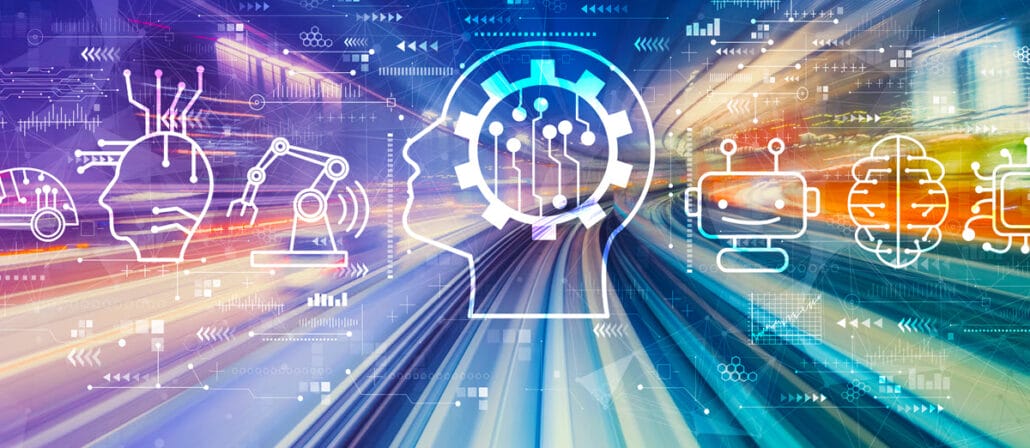
With an AI-driven future on the horizon, both employers and employees need to gear up for the ensuing changes. Organizations should encourage a culture of continuous learning, while individuals should seek opportunities for upskilling and exploring new career paths.
Staying informed and adaptable will empower the workforce to confidently navigate the transition to an AI-enhanced world.
Upskilling and Reskilling
According to the World Economic Forum, an average worker will need to change 44% of their core skills to adapt to the shifting, AI-infused job market. Upskilling and reskilling are key strategies for preparing for AI’s impact.
Employees should seek to improve their existing skills and acquire new ones to remain competitive in an evolving job market.
Exploring New Career Opportunities
AI is not just displacing jobs; it’s also creating new opportunities in fields like cybersecurity, AI ethics, and machine learning. Clear career pathways in these areas can enhance job satisfaction and open doors to exciting new roles that work in tandem with AI technologies.
If you are already employed, especially in one of the “at-risk” job categories, it’s imperative to explore alternative career options for the future. This could be in an emerging AI field, or in an industry that will continue to see high demand.
Summary
In summary, while AI is poised to replace many jobs, it will also create new opportunities and demand skills that are uniquely human. By embracing lifelong learning, developing soft skills, and leveraging AI as a tool, individuals can not only adapt to the changes but also capitalize on them. As we look to the future, the intersection of human ingenuity and artificial intelligence holds limitless potential for those prepared to navigate this new era.
Frequently Asked Questions
Will AI create new jobs or only replace existing ones?
AI is expected to both replace certain jobs and create new ones. The World Economic Forum predicts the emergence of 97 million new roles by 2025 that are adapted to the new division of labor between humans, machines, and algorithms.
How can I protect my job from being replaced by AI?
To protect your job from AI, focus on lifelong learning, acquire a broad knowledge base, and develop skills that AI cannot replicate, such as emotional intelligence, leadership, and interpersonal skills. Consider leveraging AI to enhance your productivity and work efficiency.
Which professions are safe from AI replacement?
Jobs that involve high levels of human interaction, empathy, and creative problem-solving, such as teaching, healthcare, and creative fields, are considered safer from AI replacement. These professions rely on the unique understanding and emotional intelligence of humans.
What strategies can companies adopt to prepare for an AI-driven job market?
To prepare for an AI-driven job market, companies should focus on fostering a culture of continuous learning, providing training on emerging AI technologies, and implementing structured career development plans for their employees. This will help them adapt to new AI-driven roles and stay competitive in the evolving job market.
Are there any ethical concerns related to AI replacing jobs?
Yes, there are ethical concerns related to AI replacing jobs, including increased inequality, data breaches, and client confidentiality issues in legal practice, as well as the fair distribution of AI benefits in society. It is important to address these concerns.


